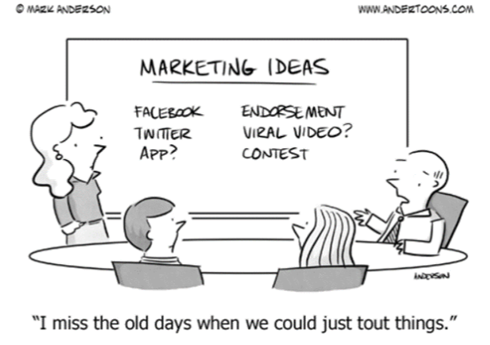
Vulnerability testing helps organizations identify weaknesses in their infrastructure by detecting security loopholes.
vulnerability testing can help you develop a systematic plan to remediate vulnerabilities and prevent future attacks.
Attend our webinar on Jan. 31 to learn how vulnerability tests are performed, how to tell what kind of test is right for your company, and more!
https://www.dpsolutions.com/vulnerability-testing-webinar
 As anybody working in IT will tell you, the most common question we get isn’t, “Why is my computer running so slowly?” or “Why is my Internet not working?” It’s, “What do you charge for your services?” With so many IT companies clamoring for your attention, it makes sense that you’d want to look for the most inexpensive, cost-efficient option, right?
As anybody working in IT will tell you, the most common question we get isn’t, “Why is my computer running so slowly?” or “Why is my Internet not working?” It’s, “What do you charge for your services?” With so many IT companies clamoring for your attention, it makes sense that you’d want to look for the most inexpensive, cost-efficient option, right?
The problem is that this question doesn’t get to the heart of the issue. Sure, any IT company can offer rock-bottom prices, but as with anything else, those savings are going to come with fewer, lower-quality IT services. Also, many cheaper services say they are inexpensive, but they typically have slow response times and nickel and dime you over everything. Instead of asking about price right off the bat, the better question is, “What will I get for my money?”
With cheapo IT companies, the answer is not much. Maybe they’ll be there when the server breaks down or if Microsoft Word is acting weird on your computer. But you can bet they won’t help you implement IT systems that will prevent real, catastrophic issues from arising – the kinds of things that determine the success or failure of a company at the most basic level.
Today, business and technology go hand in hand. It’s an inescapable fact that good tech forms the pillars upon which successful companies stand. Many business owners still insist on cutting corners with IT, hiring cheap and inexperienced “professionals” to protect and support the most fundamental aspects of their operation.
Of course, it’s hard to fault them for doing so. Without a firm grasp of a business’s IT needs, it’s all too easy for a subpar, would-be IT partner to convince an owner they meet the company’s requirements. That’s why the question, “What will I get for my money?” is so important. IT support coverage needs to be comprehensive, addressing every potential sink-or-swim crisis before it actually happens. The integrity of your network infrastructure should support your business, rather than force you to run around putting out fires.
A downed server or temporarily unreliable network might seem like minor issues, but even the smallest of IT problems can easily snowball into an expensive nightmare that threatens your company’s very existence.
Take a company that stores all its data on a central, networked server, for example. Maybe they’re a content creation firm, with terabytes of custom-designed client marketing materials stashed away, or a large law practice with thousands of vital case documents. They were reluctant to spend much on IT support, so they went with the cheapest option available. Of course, regular server maintenance wasn’t included in their package, but they assumed their trusty hardware would keep kicking for at least a few more years. But when an employee tries to access the database, an error pops up. Upon further investigation, it turns out the outdated server has finally broken down, apparently for good. All those documents, all that data instrumental to the basic functionality of the company, is irrecoverable – thousands of hours of work (and thousands of dollars) down the drain, and all because of an issue that would easily have been caught and prevented by a team of qualified IT experts.
When technology works, it’s easy to imagine that it’ll continue working without issue. But the fact is that a computer network requires constant, behind-the-scenes monitoring and maintenance to ensure it stays up and running, not to mention secure.
From hordes of hackers waiting in the wings for you to slip up, to hardware failure, to natural disasters, rogue employees and a million other IT threats, it’s important to ensure the stability of your network before a problem comes knocking. Cheap Band-Aid solutions work great until the day they cost you thousands. It’s better to invest in a team of real IT experts, and avoid crisis altogether. It’s much cheaper to prevent something from breaking than it is to replace it altogether.

Geoff Smart
-1.jpg?width=175&name=meet-like-a-ceo%20(1)-1.jpg) As both a CEO for a couple of decades and a humble bystander, I’ve grown to appreciate the fine art of how to run a meeting well. I have seen billionaire tech CEOs run meetings where people cried their eyes out they were so inspired, and I’ve seen frontline supervisors at an aluminum can manufacturing company run meetings so poorly that people were falling asleep, heads clunking down on the table.
As both a CEO for a couple of decades and a humble bystander, I’ve grown to appreciate the fine art of how to run a meeting well. I have seen billionaire tech CEOs run meetings where people cried their eyes out they were so inspired, and I’ve seen frontline supervisors at an aluminum can manufacturing company run meetings so poorly that people were falling asleep, heads clunking down on the table.
Want to run your next meeting like a CEO? Here are three ways experts avoid rookie mistakes and elevate their meetings to the next level.
1. Make an agenda with three simple questions.
This is an absolute ninja level of CEO wizardry. As many authors have said, success comes not when you have all the answers, but when you ask all the right questions. Show you have CEO swagger and print on a piece of paper (and include in the online calendar appointment) three simple questions for the itinerary. Simple questions make valuable meetings.
2. Summarize key points you hear.
Meetings get sidetracked when lots of people are talking and nobody is summarizing key points as you go. Great leaders often pause naturally about every 10 minutes and take the time to summarize the key points they’re hearing. Little statements like, “It sounds like one big conclusion we are making is X” or, “One big question I hear us asking is Y” can have a tremendous impact. Right after these summary statements, you’ll see the conversation turn toward a decision point and boom – a decision is made.
3. Make people feel safe.
I once heard a governor tell a skittish junior staffer, “Tell me more about what you mean by that. I want to understand.” On another occasion, a CEO told a new member of her team, “I am not promising I’m going to share your point of view, but I want to understand it. So tell me more.” The best CEOs don’t want to intimidate people in meetings. Instead, they make people feel safe, so that everyone feels open to sharing useful information without fear of retribution or being made to look stupid. Make people feel respected, heard and appreciated, and you’ll be impressed by the value of the information you learn, and the solutions that come from your team.
|
|

Ever wonder what you SHOULD be paying for IT support? Curious to know what type of support plan is the most cost-effective? This new report will answer those questions and reveal:
 |
Important! We hate spam as much (or more!) than you and promise to NEVER rent, share, or abuse your e-mail address and contact information in any way. |

Straughan Environmental was founded in 1995 with a focus on environmental compliance and sustainability and a commitment to technical excellence and customer service. The company provides high quality planning, engineering, and management solutions to government and commercial clients.
With numerous projects throughout the Mid-Atlantic area, Straughan has thorough knowledge of local, state, and federal regulations and procedures. Their combined technical expertise, understanding of policy and process, and agency coordination experience makes for successful projects at every scale.
Straughan consists of a dedicated team of expert engineers, planners and scientists whose collaborative approaches result in better outcomes for projects, people and the environment.
Straughan partnered with DP Solutions in 2016 to employ powerful, proactive, and intuitive managed IT services, managed backup, and disaster recovery business continuity solutions.
To learn more about Straughan, visit www.straughanenvironmental.com